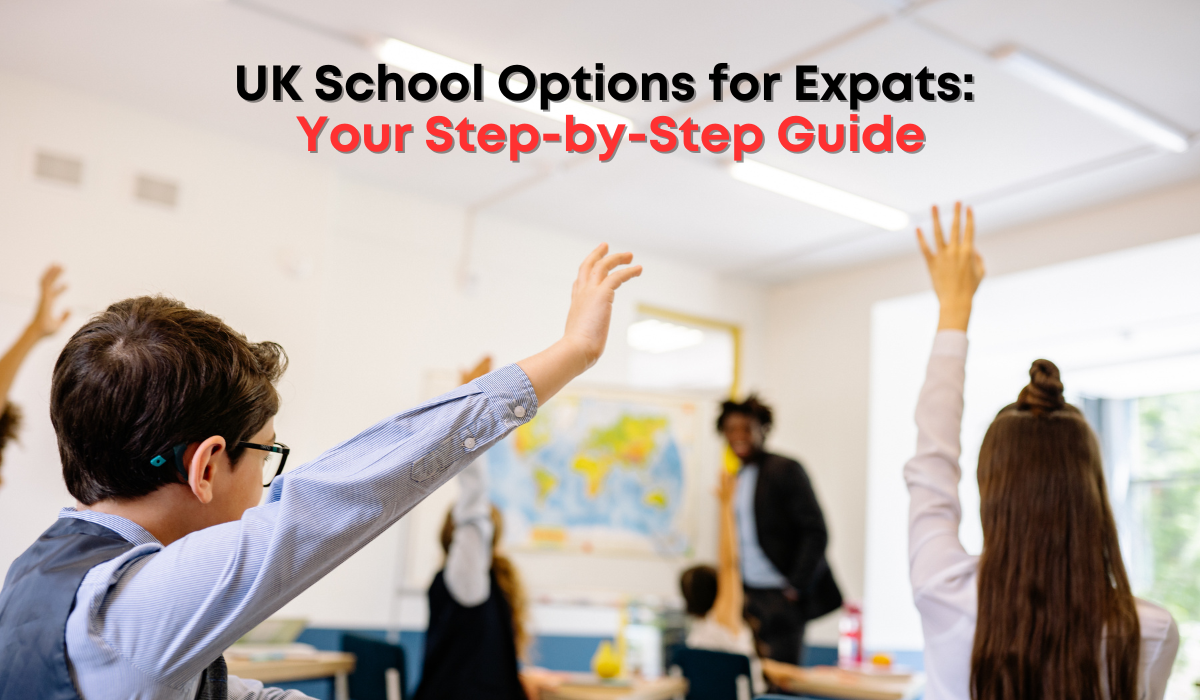Moving to a new country is an exciting adventure, but for expat families, ensuring their children receive a world-class education is often a top priority. The UK, renowned for its academic excellence and holistic approach to learning, is one of the most sought-after destinations for expats worldwide. This guide offers a comprehensive look at the UK’s education system, the distinctions between state and private schools, and how expats can make informed decisions to secure the best education for their children.
Why the UK Is an Ideal Destination for Education
Globally, the UK consistently ranks among the top countries for the quality of its education system. Its universities, such as the University of Oxford, the University of Cambridge, and University College London (UCL), are household names, celebrated for their academic prowess and global influence. However, the UK’s appeal extends far beyond its higher education institutions.
At the school level, the UK combines high academic standards with diverse cultural opportunities and robust community values. Many schools offer a tailored approach to education, balancing academics, creativity, sports, and social development. This ensures students receive a well-rounded education, fostering critical thinking, teamwork, and leadership skills.
Understanding the UK Education System
The UK education system is divided into three main stages:
- Primary Education (Ages 4-11): Foundation years focusing on core subjects such as English, mathematics, and science.
- Secondary Education (Ages 11-16): Culminates in General Certificate of Secondary Education (GCSE) examinations.
- Sixth Form (Ages 16-18): Students prepare for A-levels or equivalent qualifications, which serve as a pathway to university or employment.
The range of school types available includes:
- State Schools: Funded by the government, free for UK residents.
- Grammar Schools: Selective state schools requiring entrance exams.
- Academies and Free Schools: State-funded but independently run.
- Independent (Private) Schools: Fee-paying schools offering smaller class sizes and a broader curriculum.
- International Schools: Designed for expatriates, offering globally recognized curricula like the International Baccalaureate (IB).
- Special Schools: Tailored for children with special educational needs (SEN).
Choosing Between State and Private Schools
For many expats, the choice between state and private schools depends on a combination of factors, including affordability, location, and the needs of their children.
State Schools
State schools, including grammar schools, offer high-quality education without tuition fees. These schools follow the national curriculum and are staffed by experienced educators. However, gaining entry to top state schools can be competitive, particularly in areas with high demand. Admission is often influenced by proximity to the school and entrance exam results for grammar schools.
Private Schools
Private schools are known for their smaller class sizes, exceptional facilities, and a wide range of extracurricular activities. While they require significant financial investment, many parents appreciate the individualized attention and broader educational opportunities.
Top UK Schools for Expat Families
Here are some of the best schools for expats, as of 2024 rankings:
Top Private Schools
- St Paul’s Girls’ School, Hammersmith: Consistently ranked No. 1, known for academic excellence and Oxbridge admissions.
- Guildford High School: The 2024 Independent School of the Year, celebrated for balancing academic success with student well-being.
- King’s College School, Wimbledon: A coeducational school offering a rigorous curriculum and a strong sense of community.
Top State Schools
- Wilson’s School: Among the top-performing state schools nationally.
- Henrietta Barnett School: A selective girls’ school with a stellar academic record.
- Tiffin School: Known for its excellent GCSE and A-level results.
Navigating the Admissions Process
Securing a place at a top school requires careful planning. Here are some tips:
- Start Early: Begin the process at least a year in advance.
- Preparatory Schools: Enrolling your child in a preparatory school can enhance their readiness for competitive entrance exams.
- Visit Schools: Attending open days helps assess the school environment and facilities.
- Apply for Financial Aid: Many private schools offer scholarships and bursaries to deserving students.
For grammar schools, invest in private tutoring and regular practice for entrance exams, which typically test English, mathematics, and reasoning skills.
The Self-Sponsored Visa Route: A Flexible Path for Expats
Choosing the right visa route can significantly impact your child’s educational opportunities. The self-sponsored visa route, allowing foreign nationals to set up a business and sponsor themselves, offers unparalleled flexibility. This visa allows families to live and work anywhere in the UK, granting access to highly sought-after state and private schools.
By removing geographic and employment constraints, the self-sponsored route enables parents to focus on their child’s education, providing a stable foundation for long-term residency and growth.
Final Thoughts
The UK’s education system offers an unparalleled mix of academic rigor, cultural enrichment, and personal development opportunities. While rankings and facilities are important, choosing the right school for your child should also consider their individual needs and aspirations. For expat families, understanding the nuances of the UK education system and visa options like the self-sponsored route can make all the difference.
For tailored advice on UK education and visa solutions, reach out to a specialist immigration solicitor who can guide you through the process with expertise. Your child’s education is one of the most important investments you’ll make—ensure it’s in the best hands.
Get in touch: For a comprehensive understanding of your options or queries on UK immigration matters, contact GigaLegal Solicitors at 02074067654 or click here to book a no-obligation consultation with an immigration expert.


